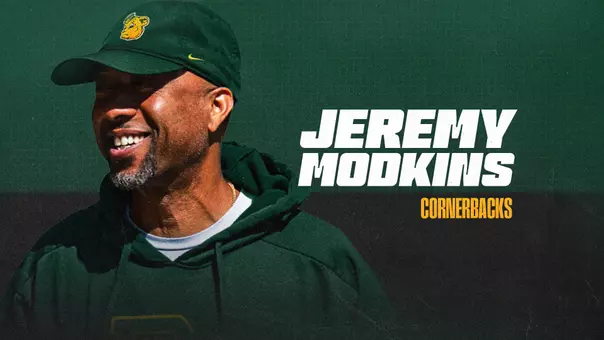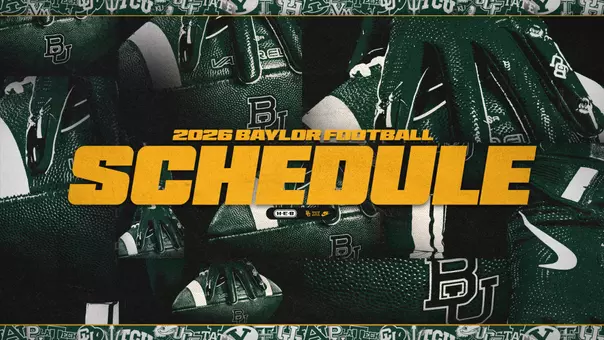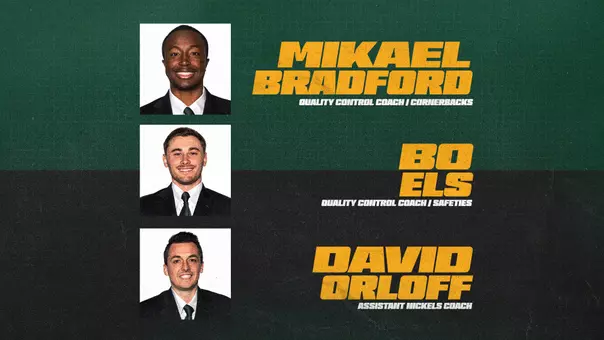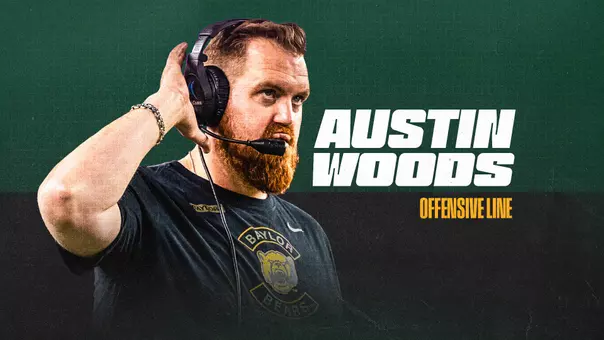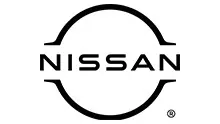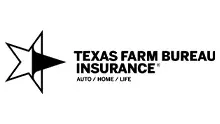For Thou Art With Me (Part Three)
4/25/2010 12:00:00 AM | Football
April 25, 2010
 EDITOR'S NOTE: This is the third of a four part story written by T. Berry of Elgin ISD, honoring John Westbrook, the first African American to play varsity football in the Southwest Conference and at Baylor. Westbrook will be honored April 25, 2010 as a Distinguished Alumni by Elgin.
EDITOR'S NOTE: This is the third of a four part story written by T. Berry of Elgin ISD, honoring John Westbrook, the first African American to play varsity football in the Southwest Conference and at Baylor. Westbrook will be honored April 25, 2010 as a Distinguished Alumni by Elgin.
READ PART ONE | READ PART TWO | PART THREE | PART FOUR
By T. Berry
After Elgin's John Westbrook became the first black athlete to play in a Southwest Conference football game, he began to gain a measure of notoriety.
Sports Illustrated, September 17, 1966: "John Westbrook is one of the two Negroes playing varsity in the SWC this season. Westbrook is a 9.6 type and will bear plenty of watching."
The same day the Sports Illustrated article hit news stands, Jerry LeVias, the first black player to sign an SWC scholarship, made his debut, catching two touchdown passes against Illinois. During his three-year varsity career at SMU, the Mustang coaching staff put LeVias' talents to good use. He rewarded them by leading SMU to a conference championship and a Cotton Bowl berth his sophomore year. Three times he was named to the all-SWC Team and was a consensus all-American in 1968. The next year, LeVias was drafted by the Houston Oilers, as a receiver and kick returner. He played six years of pro ball, the last two with the San Diego Chargers before knee injuries ended his career.
In September 1966, John Westbrook's career also had star possibilities. Following the Bears win over Syracuse, a feeling of euphoria permeated the Baylor football program and quickly spread to the campus. Led by quarterback Terry Southall, the Bears had vaulted to a top-ten ranking. This ecstasy was somewhat diminished when the Colorado Buffaloes came to Waco and left with a 13-7 victory. Against the Buffs, Westbrook only carried twice for 13 yards.
Baylor rebounded the next week, when they journeyed to Pullman, Washington, winning a hard-fought contest against Washington State. During the fourth quarter and with the Bears leading 13-7, Westbrook made good on his only carry of the day. He took a pitchout from Southall and scored from 12 yards out to ice the game. After the first three games, Westbrook was averaging 6.8 yards per carry, but had carried only five times. There were those who wondered, why wasn't he getting the ball? Westbrook later explained, "My backfield coach, Pete McCulley, I don't think he ever had any love for me at all. I don't think he particularly wanted to play me." Later, Westbrook learned that when he went on the field, McCulley would sometimes make nasty racial remarks. "The only times I really played is because John Bridgers would put me in, not Pete McCulley," Westbrook recalled. "You see, customarily the coach of that position sends you in. Pete McCulley would send me in every now and then.... Coach Bridgers did everything in his power to be fair to me"
Meanwhile, the Bears readied for their first conference game in the Ozarks against the University of Arkansas. Westbrook tried to ignore the racial taunts hurled by rabid Razorback fans, as the team made its way from the bus through a human sea of red. He did carry five times against the defending SWC champions, gaining 19 yards. After the Bears escaped with a 7-0 victory, 6,000 supporters greeted the team's return flight from the hills. The Bears hadn't won an SWC title in 42 years, but visions of playing in the Cotton Bowl were dancing in the heads of Baylor fans.
Instead of the team going on a roll, what followed was three straight loses, to Texas A&M, TCU, and Texas.
After gaining a scholarship and contributing on the field, conditions began to improve socially for Westbrook. He later recalled, "There was a certain amount of respect gained. It was played up that I was a Christian and a minister. A lot of people started inviting me out to speak in churches." Then he hurt his knee.
Facing a must-win situation against the TCU Horned Frogs, Baylor's starting halfback, Richard Defee, injured an ankle and Westbrook was sent in to replace him. On his sixth carry, a 14-yard sweep, his right knee was drilled by a TCU defender. Lying there, he didn't know how severe the injury was, but he knew it was bad.
An injury is never timely, but this one couldn't have come at a worse time. With their top two halfbacks on the sideline, the Bears lost a defensive struggle to the Frogs, 6-0. It also came at a time when Westbrook was starting to emerge as one of the Bears' main offensive threats. After the game Coach Bridgers told reporters, "Westbrook played extremely well...he did a tremendous job. I've never seen a greater seven-yard run than he made on that reverse...he actually shed about five tacklers and two of them had him stood up 10 yards behind the line. I feel he has tremendous possibilities as a running back."
"Westbrook is hard to tackle, he's strong" said TCU defensive end Doyle Green. "He's the best running back I've seen this year."
Two weeks later, Westbrook tried to come back against SMU. After pulling in a 28-yard pass from Southall, the knee was re-injured and he was through for the season. Although there was ligament and cartilage damage, team doctors decided against him having surgery. But the knee did not heal on its on. That winter he could be seen literally dragging his leg around campus.
My voice shalt thou hear in the morning, O LORD: in the morning will I direct my prayer unto thee, and will look up. - Psalm 5:3
"Things were okay until I got my knee hurt," Westbrook later recalled. "I think most of the coaches turned against me, especially Coach Jack Thomas. He just flat out told me that he thought I was on a gravy train. That now I just wanted a free trip.... Some of the assistant coaches confessed after my graduation, they tried hard to run me off," Westbrook painfully remembered. "They admitted they taunted me and it hurt me a great deal when they said it. It made me sad."
There were also problems with the equipment manager. "I got bad equipment constantly," Westbrook remembered. "He was always telling dirty `Rastus' stories, expecting me to laugh. The day Martin Luther King was assassinated, he said, `They finally killed Martin Luther Coon.' He always hated that man."
According to John's older brother Robert, now a physician in San Antonio, "I didn't know he was going through such abuse. They tried to keep a lot of things from me. At the time I was in medical school and they didn't know how I would react. After all, he was my little brother."
In the face of such treatment, why didn't Westbrook retaliate and go tit for tat? In an interview conducted after he had left Baylor, Westbrook explained, "I felt like I was the guy that could take all the crap. I had to be the one to keep my head cool for the sake of someone coming along later."
John realized this was the most important thing he had ever done or ever would do. In going to Baylor, he hadn't especially sought to be the first black to play in the conference, but after it happened he was resigned to accept the burdens that went along with it.
Later Jerry LeVias echoed the same sentiments, "I was a real nice person and they'd say, `Hmm....black people are not so bad. Being first is a source of pride for me, having opened the doors and eyes of other people, so coaches could take off the handcuffs and give opportunities to other black athletes."
Like LeVias, Westbrook received death threats and there was hate mail. "Niggers ought to stay in the cotton fields," read a letter he received one Saturday before a game. The letter was signed, "A Big Baylor Supporter."
One light in his life which shone through all of the darkness was Paulette White. She was now a student at North Texas State in Denton. John had begun making the drive up I-35 to visit her on weekends. According to Paulette, "John always had a very active prayer life that helped sustain him through the tough times." "John prayed a lot," recalled roommate Charles Houston. "He even had a special `steal away spot' that he would drive to."
It only took one day of spring practice for team doctors to decide that only surgery could correct the damage to Westbrook's knee. Some felt the surgery was sub-par, while others questioned his rehabilitation efforts. By the time fall workouts began, Westbrook was still hobbling. Bridgers told reporters, "It's pretty obvious Westbrook won't be ready for awhile. His knee just hasn't come around. This is a pretty bad blow. He's the best breakaway threat among our running backs."
After missing the first two games, a heavily taped Westbrook played against Washington State and had the best game of his career. It was the Bears' only win that season. The next day's Dallas Morning News contained this line: "Thanks to the return of their [the Bears] Negro scooter, John Westbrook, they had a measure of rushing success."
He would play in only two more games that season. During a midseason practice, Westbrook received a concussion that would sideline him for the final five games. According to Westbrook, "Coach Ramsey Muniz would tell guys to try and kill me in practice. He said he wanted to see what I was made of."
Watch and pray, that ye enter not into temptation: the spirit is indeed willing, but the flesh is weak. - Matthew 26:41
During the off-season, his faith in God was severely tested. "Just depression," Westbrook later recalled. "Christian people had let me down. Being injured and not being able to play as much as I wanted to. Along with the regular pressures of trying to make good grades and trying to toe the line morally, when you really wanted to reach out and slap somebody. If you put that on a person at the right time they can get really depressed."
In 1972, Westbrook had an article published in Guidepost Magazine, titled The Man Nobody Saw. "Most of the students weren't overly antagonistic," he wrote, "But most just looked through me as I walked across campus. Others acted like black was catching. In the cafeteria, they'd watch where I picked up my silverware from the tray, then reach clear across to take theirs from the other side. All the little cuts like this began to fester.... On top of this, a knee injury had put me back to fourth team for spring training. Then I found out my own mother was dying. My mom wouldn't be there to see me graduate. What was the sense in sticking it out?"
"I thought about Lake Waco, where I could drive in and just let my car sink. Was that why I took the road to the lake - or was it because that road led past the home of Riley Eubank [Pastor of the Seventh and James Baptist Church]? He told me to come in and get it off my chest. And out it came. All the rage, the hurt - everything I had against people. When it was all out, Mr. Eubank went and picked up his Bible. He handed me the book open to a passage in John: `This is my commandment; that yea love one another, as I have loved you.'
Well of course, I didn't drive into the lake. I drove back to campus, determined to see if I could love like this. Not much changed around me, but bit- by- bit I changed. I began to open up more to other people. I realized I'd been doing some ducking of my own - holding back my hand, for instance and letting the other guy stick his out first."
On August 3, 1968, John and Paulette were united in marriage. They had moved up the wedding date so the marriage would take place before John's mother lost her battle with cancer. There was no time for a honeymoon. Fall workouts were about to begin.
